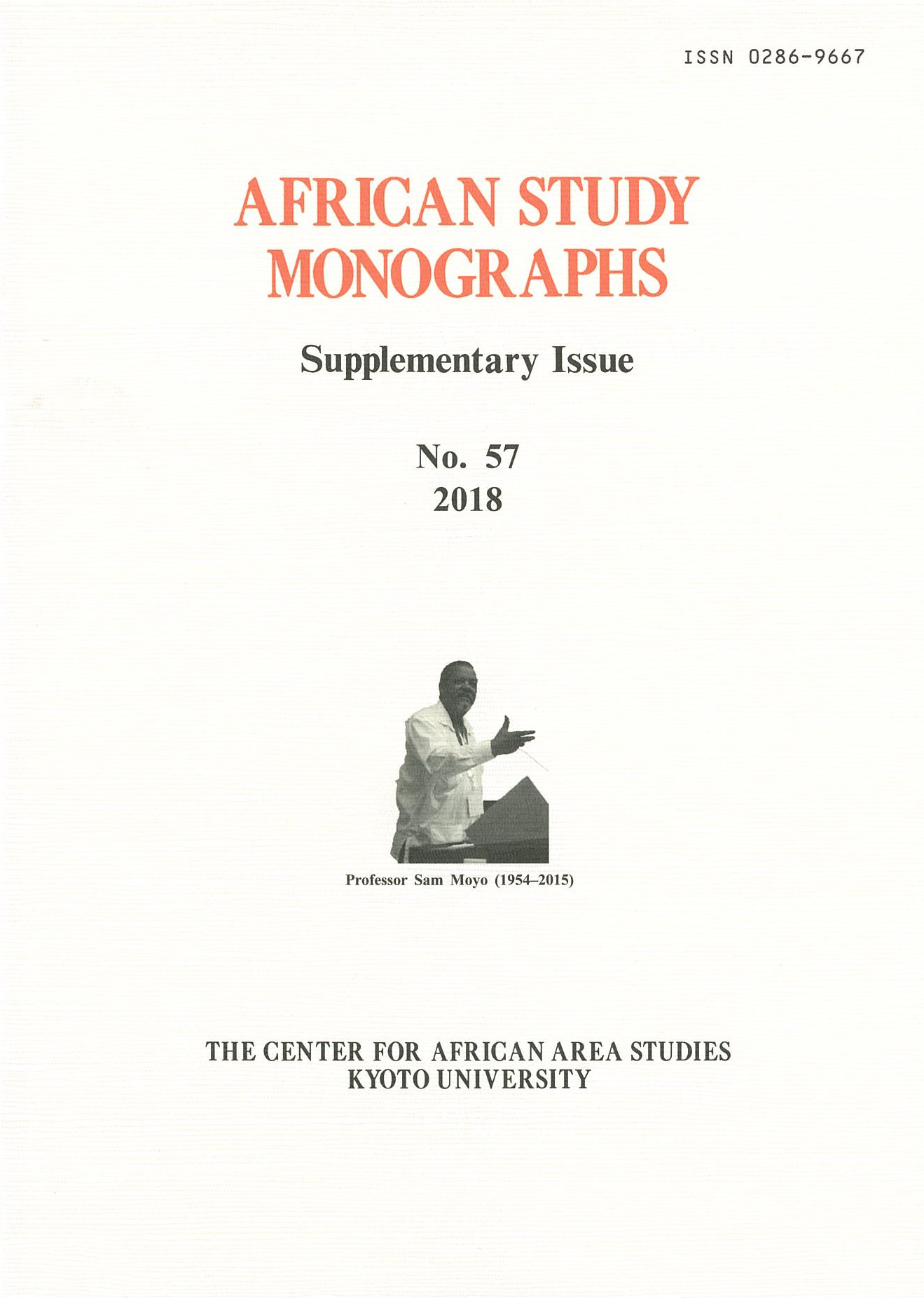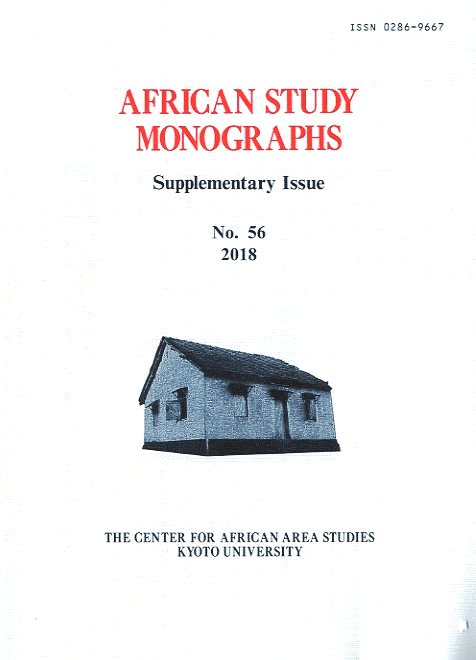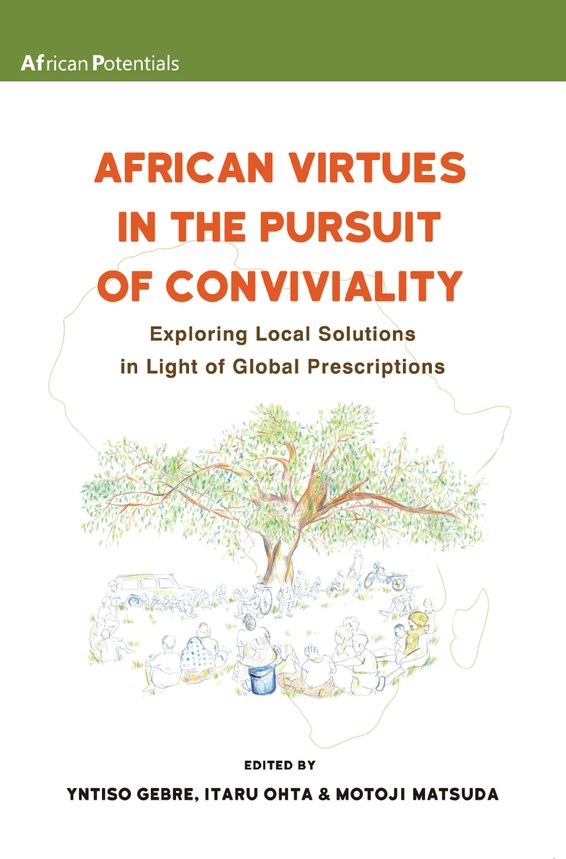Date and Time: 15:00–17:00, June 17, 2017 (Saturday)
Venue: Large Meeting Room, Third Floor, Inamori Foundation Memorial Hall, Kyoto University
Firstly, the project leader, Motoji Matsuda, announced on behalf of the secretariat that preparation for the “Africa Forum,” scheduled for November 24–26 at Rhodes University in South Africa under the theme “Nationalism and Universalism in Africa” has been in progress. In addition, he reported on the project members’ outreach activities, including participation in the European Conference on African Studies (ECAS), participation as a panel in African Studies Association (ASA), and publication of an African Study Monograph featuring the “Kampala Forum” held last year. Additionally, he mentioned a request for recommendation for the “next generation research support project.” Finally, Gen Yamakoshi, a member of the secretariat, announced the schedule of future plenary meetings, confirmed the meeting contents and remarked on the operation for the team meetings.
Following the announcements, the team members carried out the “Research Report from Education and Human Development Research Team.”
In the beginning, Mayo Oba, who served as an MC, introduced members of the Education and Human Development Research Team and reported on their activities for the last fiscal year. She reported that the members, with expertise on education, anthropology, and political science, had deepened their understanding through discussion with each other at team meetings throughout last year.
In the case study presentation, Nagisa Nakawa presented on “Topics from Mathematics Education: Ethno-Mathematics and Curriculum Development.” Mathematics education has been developed by overarching various academic fields, such as mathematics, pedagogy, history, psychology, and cultural anthropology, and focuses on research subjects, such as epistemological topics, educational guidance, curriculum issues, and teacher training. Ethno-mathematics is one such research topic in mathematics education, and it has made full-scale development since the late 1970s. It has explored contents and pedagogy of locally-rooted mathematics, which differs from school mathematics, as well as curriculum and program developments, with reflection on the “Mathematics for All” policy in the 1980s, which brought the curriculum model of developed countries directly into the developing counties. The presenter introduced sand art in Angola, which has been internationally known as the contents of ethno-mathematics, and construction methodology in Mozambique as concrete examples, and shared a video on early child education in which the presenter was involved. Curriculum contents in Zambia have not been developed with reference to ethno-mathematics; however, teachers looked for cultural materials, with which children are familiar, and used them to teach mathematics. The presenter discussed that the potential of ethno-mathematics can be found in such activities.
The first commentator, Akiyo Aminaka, made observations from a political science perspective. She pointed out there is a risk in teaching ethnic practices as separate contents from the historical and political background the practices are associated with, and that such risk could lead to practices like the Bantustan education policy, which appreciated ethnicity at first look but oppressed the people in practice. She also raised a point that there is need for awareness on who creates the education curriculum and for what purpose. The second commentator, Akira Takada, raised questions related to anthropology and development psychology, such as what are the purposes of teaching and the broad education objectives in ethno-mathematics, how ethno-mathematics is related to conventional infant education, what endemism of ethno-mathematics is in terms of relation to the level of development, whether school in the studied area be observed as “practice community,” and what stance ethno-mathematics could take while modern education is linked to the nation–state system.
The leader of the Education and Human Development Research Team, Shoko Yamada, pointed out the importance in considering how ethno-mathematics builds relationship with institutions, such as school mathematics and schools. She mentioned that the research should expand the perspective to lives and activities outside schools, with attention to the exclusion and imposition aspects of schools and how the teaching contents at schools should not be regarded as free from value bias.
Many comments and questions were raised from the floor, such as: issues on evaluation of math and science education in Africa, relationship to the deschooling discussion of Illich, relationship between the counting system and school math curricula seen in the Bemba people in northern Zambia, comparison between widely spoken languages and minority languages in terms of linguistics, and the unique position of mathematics. Nakawa responded that she will deepen her research by including ethno-mathematics points of view in the field study, with attention to the comments and remarks made at the meeting.
Reported by Misa Hirano-Nomoto



